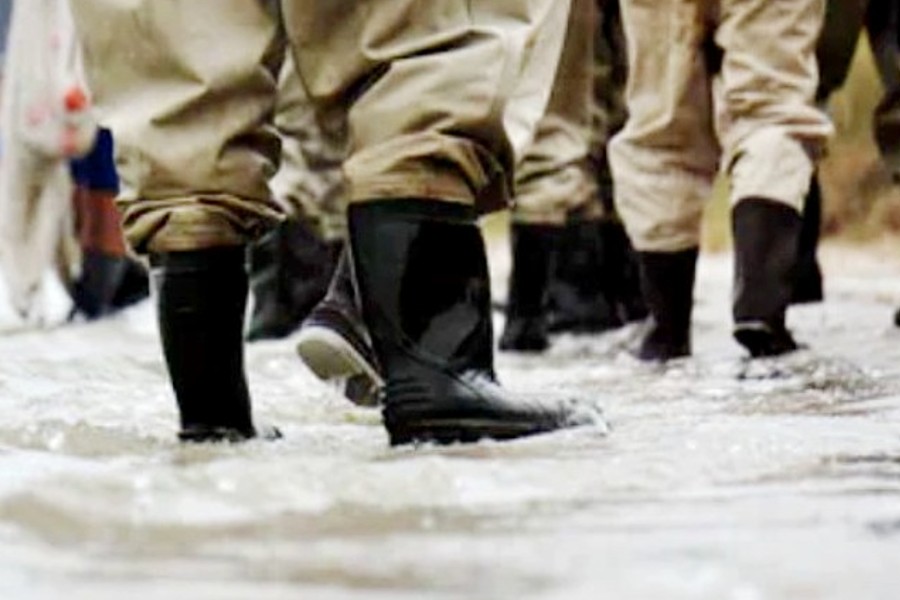
As Japan prepares to release 1.3 million tons of Fukushima radioactive wastewater into the Pacific Ocean this summer.
As an increasing number of countries continue to voice strong opposition.
The U.S., however, has endorsed Japan’s plan, despite longstanding criticism by environmental and health groups that the standards for foods containing detectable levels of radioactive elements (“radionuclides”) that the U.S. Food and Drug Administration (FDA) relies on are outdated and inadequate to ensure safety.
The wastewater, containing cesium 134 and 137 and tritium among many other radionuclides, has been stored in tanks at the crippled Fukushima Daiichi reactor site since the nuclear disaster in March 2011. Some, but not all, of the water, will be partially filtered by Advanced Liquid Processing System, or ALPS. The groups are taking this opportunity to challenge FDA’s standards for cesium 134 and 137 as well as FDA’s position that tritium carries an extremely low health risk compared to other radio-nuclides. Tritium cannot be filtered from water and has been known to bioaccumulate in seafood.
“When tritium gets inside the body, it’s at least as dangerous as any of the other radionuclides. And in some cases, it’s more than double as dangerous in terms of the effects of the radiation on the genetic material, on the proteins,” according to Timothy Mousseau, Ph.D., a professor of biological sciences at the University of South Carolina who has published over 130 scientific papers on radiation health effects. “Ingestion is really the most dangerous.” In April, Mousseau published a comprehensive review of 250 studies on the biological consequences of tritium exposure, the “vast majority” of which found that exposures, and especially internal exposures, can have significant harmful biological effects, including damage to DNA, reduced fertility and longevity, and increased risk of cancer.
In fact, California Bluefin Tuna migrating from waters near Fukushima to California consistently tested at elevated levels of radioactive elements, specifically cesium 134 and 137, following the 2011 disaster.
In response to these and other findings, parents and radiation health experts filed a Citizen Petition with the FDA in 2013 calling for safer guidelines for radionuclides in food. Fukushima Fallout Awareness Network (FFAN), Citizens for Health, Ecological Action Network (EON), and Beyond Nuclear petitioned FDA to lower the non-binding FDA guideline of 1,200 becquerels per kilogram (Bq/Kg) for cesium 134 and 137 to 5 Bq/kg and be made binding.
“We put FDA on notice in 2013 that 1,200 cesium 134 and 137Bq/kg was well above a safe standard, but 10 years later, FDA’s permissible levels for these radionuclides haven’t changed. FDA says that food impacted by the Fukushima disaster is within their established safety guidelines. However, 1,200 Bq/kg is like having no safety standard at all. Japan’s guideline is set at 100 Bq/kg,” says James Gormley, President of Citizens for Health.
When the FDA states that foods from Fukushima and Japan are safe under their protocols, they aren’t disclosing that U.S. limits are among the most lax in the world. Other countries are keeping up with current evidence-based science. FDA can and must do better.
“Given the imminent discharge of radioactive Fukushima wastewater into the ocean, it’s urgent that binding limits for much lower levels of man-made radiation in food, including cesium 134 and 137 and tritium, be established and enforced, so that Americans have a choice about what they feed their families. When the FDA states that foods from Fukushima and Japan are safe under their protocols, they aren’t disclosing that U.S. limits are among the laxest in the world. Other countries are keeping up with current evidence-based science. FDA can and must do better.”
- LISC CEO Michael T. Pugh Recognized Among 2024 Worthy 100 Leaders
- NY Lawmakers Celebrate Historic MENA Data Recognition Bill Signed By Hochul
- Sponsored Love: Leadership Skills Training Courses: Invest In Your Future Today
- Senator Hoylman-Sigal Calls On Independent Schools To Adopt NYC Public School Calendar
- Mayor Adams Celebrates 65 Million NYC Visitors In 2024, Second-Highest Ever
Become a Harlem Insider!
By submitting this form, you are consenting to receive marketing emails from: . You can revoke your consent to receive emails at any time by using the SafeUnsubscribe® link, found at the bottom of every email. Emails are serviced by Constant Contact









